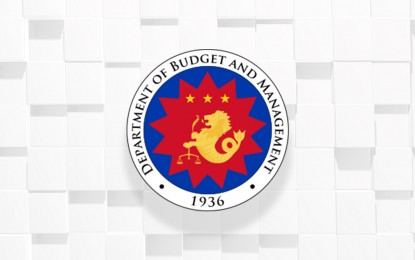
MANILA – The Department of Budget and Management (DBM) welcomed Wednesday the preliminary findings of the International Monetary Fund’s (IMF) mission team on the Philippines’ economic performance.
After the conclusion of the 2023 Article IV Consultation Mission to the Philippines on Tuesday, the IMF Mission Team led by Mission Chief Shanak Jay Peiris lauded the DBM’s key structural reforms that are crucial in sustaining the country’s growth gains.
Budget Secretary Amenah Pangandaman thanked the IMF Mission Team for its positive outlook on the Philippines, as well as for the policy recommendations to boost the country’s economic health and stability.
“We welcome this report of the IMF acknowledging our PFM (public financial management) reforms, and we will work even harder to achieve our economic targets and stay on track with our Agenda for Prosperity,” Pangandaman said.
The IMF staff, in its preliminary findings, noted that fiscal consolidation under the Marcos administration’s Medium-Term Fiscal Framework (MTFF) is “on track,” reflecting a strong revenue performance and lower current spending while maintaining infrastructure outlays at or above 5 percent of the gross domestic product (GDP).
It added that the pace of fiscal consolidation is appropriate to bring the national government debt-to-GDP ratio to less than 60 percent over the medium term.
“An even more ambitious revenue mobilization strategy could finance more social spending to achieve poverty reduction goals and to respond to natural disasters while keeping the deficit path unchanged,” it said.
The IMF mission team added that fiscal reforms, including the Military and Uniformed Personnel Pension Bill and the Budget Modernization Bill, are critical and should be complemented by ongoing efforts to strengthen the oversight of government-owned and -controlled corporations.
It also emphasized that financing the country’s infrastructure gaps through public-private partnerships (PPP) is “well placed,” adding that it also welcomes the new PPP Code.
It said the reform of the mining fiscal regime and Mining Act also provides an opportunity to enact a “progressive and unified” tax system, and a “competitive” investment regime.
The DBM said the IMF has also acknowledged that the digitalization of the PFM systems and the improvement of bureaucratic efficiency have gained momentum, including the Integrated Public Financial Management Information System (IFMIS) and the National Government Rightsizing Program (NGRP).
“The proposed amendments to the Government Procurement Reform Act were likewise cited as a crucial initiative to further enhance the legal and institutional framework for transparent and competitive public procurement. These include the implementation of the modernized Philippine Government Electronic Procurement System (mPhilGEPS) and the adoption of a Green Public Procurement Strategy,” the DBM said.
“With the implementation of these structural reforms that are geared towards raising long-term growth, the Philippine economy was able to emerge strongly from the pandemic. The country’s growth outlook also remains robust despite global headwinds and local developments.”
The IMF staff also affirmed that the Philippine economy is on track in bringing down the country’s deficit and debt levels to pre-pandemic levels, as well as in achieving the goals set under the administration’s MTFF.
The IMF Article IV Mission is an annual bilateral consultation with member countries, which allows an IMF Mission Team to meet with government and central bank officials to discuss and assess economic and financial developments.
Gov’t disbursements
Pangandaman pledged to sustain the strong growth of government disbursements to finance priority programs of the Marcos government and help boost the economy’s expansion.
“For our part at the DBM, we will sustain government disbursements at above 20.0 percent of GDP (gross domestic product) on average as we continue to prioritize expenditures in support of the 8-Point Socioeconomic Agenda and the Philippine Development Plan 2023 to 2028,” she told journalists in a Viber message.
In April, the inter-agency Development Budget Coordination Committee (DBCC), after reviewing the government’s medium-term macroeconomic assumption, fiscal program, and growth target until 2028, approved that government spending will account for 21.3 percent of the GDP this year and will decrease gradually in the coming years.
As of end-August, government revenues rose by 9.03 percent year on year to PHP2.58 trillion and expenditures by 3.54 percent on an annual basis to PHP3.31 trillion.
This resulted in a budget gap of PHP732.5 billion, down by 12.06 percent.
“The government’s fiscal consolidation strategy, which supports the Administration’s socioeconomic development agenda, will be underpinned by increasing revenue effort through tax policy and tax administration reforms, as well as declining deficit trajectory over the medium term,” Pangandaman said.
The deficit-to-GDP ratio is also targeted to decline to 3 percent of the annual output by 2028, with the increased infrastructure spending to be financed by the government with the help of the private sector.
“For fiscal consolidation to remain on track in the long term, we are also working on public spending efficiency,” Pangandaman said. (With a report from Joan Villanueva/PNA)
